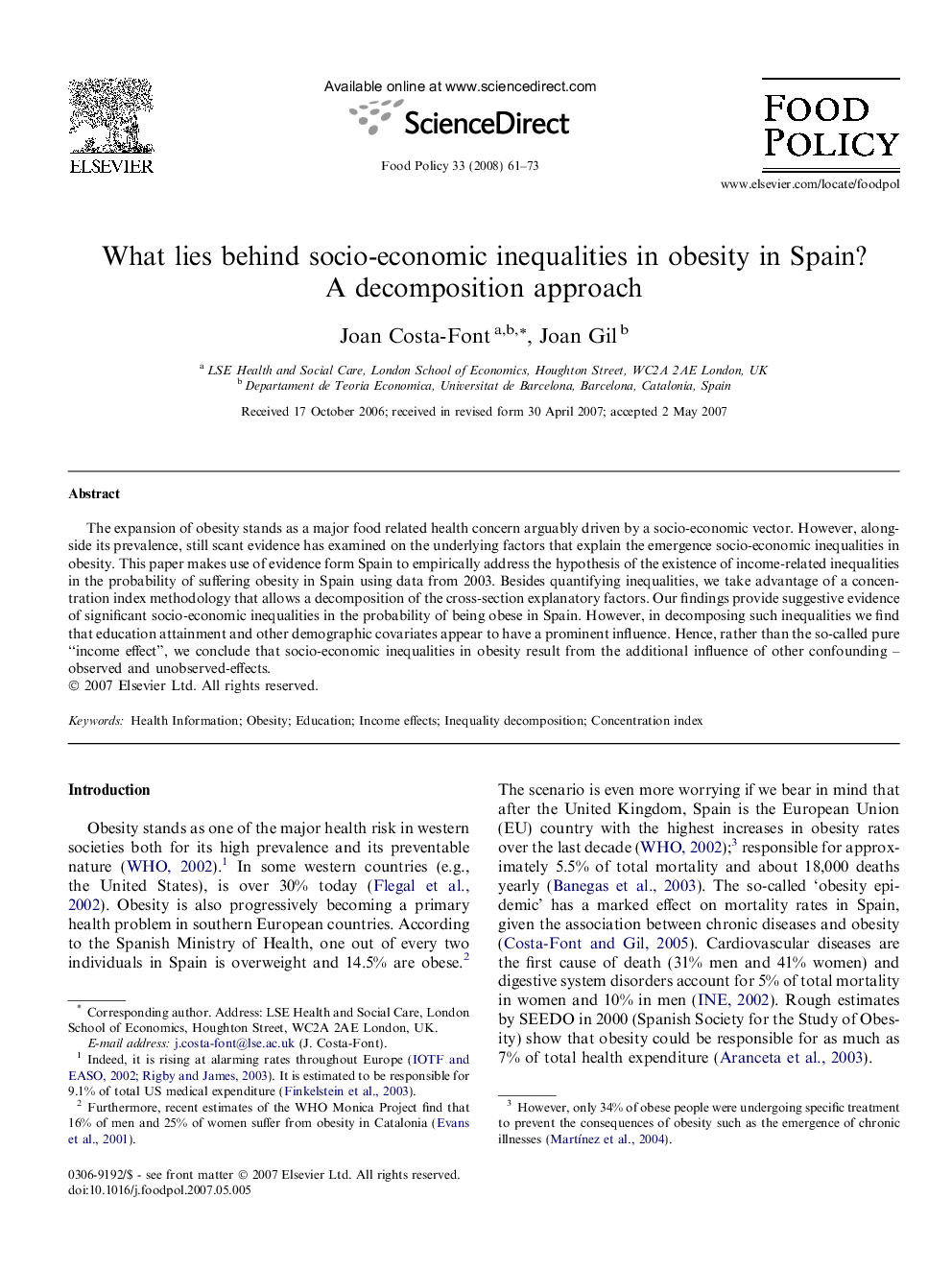| Article ID | Journal | Published Year | Pages | File Type |
|---|---|---|---|---|
| 5071149 | Food Policy | 2008 | 13 Pages |
Abstract
The expansion of obesity stands as a major food related health concern arguably driven by a socio-economic vector. However, alongside its prevalence, still scant evidence has examined on the underlying factors that explain the emergence socio-economic inequalities in obesity. This paper makes use of evidence form Spain to empirically address the hypothesis of the existence of income-related inequalities in the probability of suffering obesity in Spain using data from 2003. Besides quantifying inequalities, we take advantage of a concentration index methodology that allows a decomposition of the cross-section explanatory factors. Our findings provide suggestive evidence of significant socio-economic inequalities in the probability of being obese in Spain. However, in decomposing such inequalities we find that education attainment and other demographic covariates appear to have a prominent influence. Hence, rather than the so-called pure “income effect”, we conclude that socio-economic inequalities in obesity result from the additional influence of other confounding - observed and unobserved-effects.
Keywords
Related Topics
Life Sciences
Agricultural and Biological Sciences
Food Science
Authors
Joan Costa-Font, Joan Gil,
